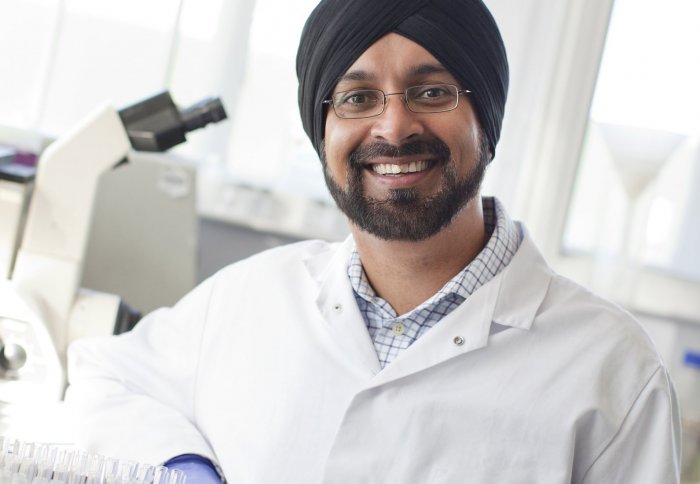Prize-winning scientist on infertility research and the IVF postcode lottery
by Maxine Myers

A professor who developed a new treatment that could make IVF safer for women has won the Society for Endocrinology Medal.
The accolade has been awarded to Waljit Dhillo, Professor in Endocrinology and Metabolism at Imperial College London.
Professor Dhillo and his team have successfully used a pioneering method to stimulate ovulation in women during IVF treatment.
42 babies have been born after their mothers were given an injection of the natural hormone kisspeptin to make their eggs mature instead of the usual fertility drugs such as hCG, which can overstimulate the ovaries, with potentially life-threatening consequences.
The Society for Endocrinology Medal is awarded by the British Endocrine Society, on an annual basis, to an endocrinologist working in the UK in recognition of outstanding studies.
Maxine Myers caught up with Professor Dhillo following his award to find out more about his endocrinology work and views on the future of IVF treatments.
1) How do you feel about your award?
It is a tremendous honour to be awarded the Society for Endocrinology Medal for our research work to make IVF a safer procedure. Ovarian hyperstimulation syndrome (OHSS) is a potentially life-threating side effect of IVF treatment and our research has shown that kisspeptin can effectively and safely trigger egg maturation in women, especially those at high risk of OHSS. It can also produce high pregnancy rates. This award reflects the incredible dedication and hard work of my whole research team and it’s great that our efforts have been recognised in this way.
2) What other areas of endocrinology do you work on?
Reproduction is closely linked to the body’s nutritional status and my other main research focus is the role hormones play in controlling obesity. Recent studies suggest that hormones in the gut and brain control our appetite. By understanding how hormones in our body control our appetite we can start developing hormonal based therapies that can reduce food intake and therefore be an effective treatment for obesity.
3) What do you think the future of IVF looks like?
IVF has revolutionised the outlook for couples with infertility to have their own children. Two per cent of babies born in the UK are as a result of IVF treatment. In the future, research to improve the safety and efficiency of IVF treatment is important and we hope that kisspeptin will be one of the drugs which will become a standard part of clinical practice.
4) Two hospital trusts in Essex have severely restricted access to IVF on the NHS for couples. What impact could this have on patients if this policy becomes more widespread?
Infertility is a recognised medical condition which affects one in six couples. It can have a devastating effect on a couple’s mental and physical wellbeing. IVF offers hope to many infertile couples and should be part of NHS treatment. Restricting access to IVF on the NHS for couples will mean that only those who can afford private treatment will have access to it.
5) What research work are you currently working on?
We are currently carrying out a further study using kisspeptin in patients undergoing IVF treatment to determine if one or two injections of the treatment result in the highest pregnancy rates. We will then carry out a large randomised trial of kisspeptin versus standard treatment in women with infertility in order to translate our findings into benefits for patients.
Article text (excluding photos or graphics) © Imperial College London.
Photos and graphics subject to third party copyright used with permission or © Imperial College London.
Reporter
Maxine Myers
Communications Division